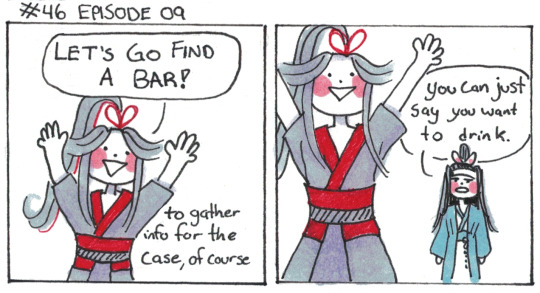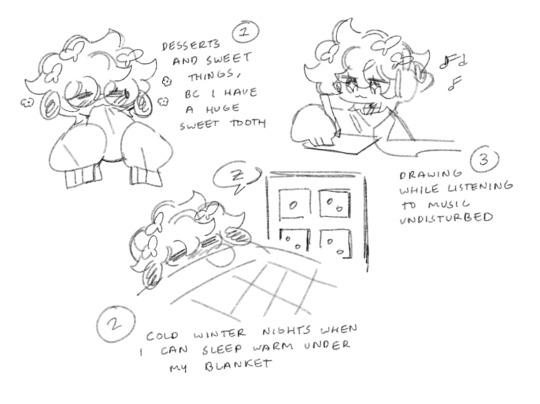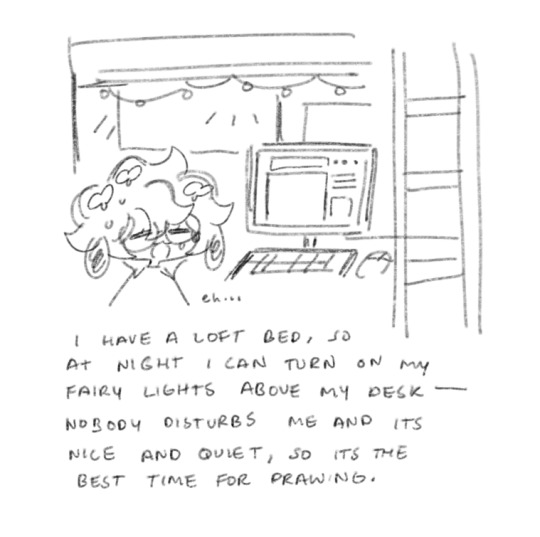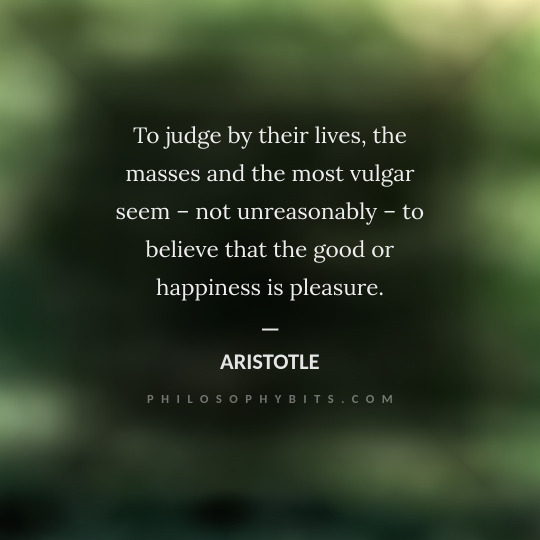#Happy Hedonism
Text
Since the stable is a Jewish business, we really don't do anything differently around Christmas. Boarders are free to decorate their own stalls, and sometimes a festive saddle pad might get brought out.
But here is a Goyim tradition I really fucking love: every December, each horse/pony gets a stocking hung in the arena barn. Around Solstice I stuff them full of peppermints and mini-canes.

Unfortunately, I usually do the stuffing in the evening, when everyone's in their stall for the night. Which means they hear the wrappers crinkling.
Heads are suddenly out all the way down the aisle, because, SHE HAS PEPPERMINS, and then the door pounding and demanding nickers immediately follow.
It's like listening to caroling.
28 notes
·
View notes
Text

Business comes first! Drinking is the job!
[First] Prev <–-> Next
#poorly drawn mdzs#mdzs#wei wuxian#lan wangji#It's finally outfit change time! Third time for wwx and second for lwj!#I'm always a big fan of when characters change clothes and it's fun to change it up.#this scene once again emphasizes how much wwx acts in a reactionary way and gets *so thrown* when someone goes ‘yes-and’#‘no lan zhan- you arent supposed to *agree*’#there’s also a lovely gentleness to how he phrases it. Lwj just wants wwx to be happy. Bonus if he gets to be in proximity#wwx’s hedonism is a very interesting topic for another analytical rant#pre-burial mounds he’s a creature of pleasures! Post burial mounds? He doesnt feel alive enough to warrent enjoying life’s pleasures#i guess you could say both lwj and wwx have struggled comparing and contrasting two versions of each other
734 notes
·
View notes
Note
3, 17, and 20?
3: answered here!!
17: name 3 things that make you happy

20: favorite things about the night?

send me a number!! 💌
#im.. a pretty simple person shfgh#i dont go out at night or anything so thats really the only thing i can think of ;; i need to pick up new hobbies wiugh#my parents say im pretty easy to please bc im happy if i can eat my favorite meals and draw. thats about it#i dont really have much i want to accomplish in life but it feels wrong to call it hedonism.. i just want a peaceful life ig#ask#ask game#answered#yapping#doodles
29 notes
·
View notes
Text
spending ur lunch break to shadowbox trannies in the alley!!!
#we r friends and martial artists so it was much fun#sparring is so fun#radical transgender hedonism#rth#happy solstice#winter solstice
22 notes
·
View notes
Text
Happy International Women's Day!

dump of thoughts and other versions of this art⬇️
On the day of women's solidarity in the struggle for women's rights and emancipation, I drew Isla! I think she is a very strong and interesting person. Plus she's a medical person! Only men worked as doctors until the mid-19th century in many countries, but now.. the world has changed enough for gender equality to appear in the professions!



I NEED MORE ISLA!!
#darqx#I don't know what Isla's last name is sorry#she's so beautiful#and she is very caring#i love her#she's my mom 🤲#I think other girls from BP also deserve to be in the top of the most beautiful and strongest heroines#HAIR! I MADE HER HAIR TOO LIGHT!!#OH SH-#but I like it with this shade because it looks so light (bada-bum-tsss) and airy#hedone high#hedonehigh#hh au#battle priest#happy women’s day
16 notes
·
View notes
Text
Steddyhand modern AU where they oops themselves into a throuple.
Ed and Izzy are roommates who run a business together. They are kind of an on-again-off-again, open-ish polyam sorta-couple that has never once had even a second of healthy communication about their relationship in the twenty years they’ve known each other.
Izzy meets Stede first because he actually attends the meetings for the local business owners association or whatever. Technically Stede should be competition but Izzy quickly decides he is an idiot and will probably go under soon. He’s weird as hell though, Ed would love that.
Ed does love that. He is delighted by the crazy shit he hears about the new guy and wants to meet him. The two hit it off because of course they do. That wouldn’t even bother Izzy all that much except between their flirting and their dumb dates, Ed and Stede want to talk about cooperative business ventures. And the business, that’s Ed and Izzy’s thing. They’ve worked hard to build it, together, and Izzy works hard still to protect it. he doesnt want to risk it on some crazy scheme these two come up with just because Ed is bored. So yeah he hates Bonnet, but its not romantic jealousy (or is it?)
The tension between Stede and Izzy comes to a head one evening when they are both drunk and still seething over an argument they had earlier in the day. Drinking turns to shouting. Shouting turns to shoving. Only a couple punches are thrown but there;s a lot of undignified scuffling around on the floor.
Izzy isn’t really sure later when wanting to rip Stede’s head off had turned into yanking that golden hair to pull him closer. Or who hungrily took whose lips first. He remembers a soft handkerchief cleaning his bloody nose on the short trip to the bedroom, remembers checking Stede’s split lip to assess if it could withstand further kissing. He doesnt remember how Edward inserted himself into the situation, but he does recall the man giggling as they tried to arrange the three of them on the bed and he nearly fell off the mattress.
He remembers everything after that too. Every touch, every kiss, every gasp and moan and sigh. The shock of twenty fingertips softly exploring him was a sensation burned into his brain forever now. He remembered it all. And he didn’t regret a second of it, even if it would be easier to.
No one says anything about it because thats just how Ed and Izzy are (emotionally incompetent) and Stede like just came out two months ago. He hasn’t dated since university and he’s certainly never had a threesome. He is completely unequipped to handle all this. So he just follows their lead.
So things mostly go on as normal with Stede and Ed spending time together and Izzy’s often around when they do. But Stede is a sweetheart, and a gentleman, and he also cannot stop thinking about how enjoyable that night was. It seems rude to not express that, but one doesn’t just say “thanks for that phenomenal sex”, do they? How does one, err, request a repeat?
Stede spots a gift he thinks Izzy might like and gives it to him. A short while later he notices the bag Izzy carries is nearly falling apart and replaces it with a nice satchel. Black leather, very cool, very much Izzy’s aesthetic, very much designer label and expensive as hell.
Stede has to cancel a date with Ed one night, but orders an absolutely ludicrous amount of takeout delivered to their place anyway. A lot of it is Izzy’s favorites.
Then there’s the concert tickets. He and Ed had given up hope of affording even nosebleed seats as soon as the tour had been announced, but Stede gets VIP, backstage passes, the works for all of them. Stede doesnt even like the band!
Izzy can’t take it anymore and has to ask Stede what the fuck. Why the gifts and the gestures and all this stuff? Is it just to butter Izzy up so he’ll agree to whatever dumb business idea the other two have?
“I didn’t think I needed a reason to do nice things for my boyfriend!”
“...boyfriend?” Izzy asks, just utterly shocked. He’s echoed by Ed, who sounds less surprised and more… considering.
“Um. Yes?” Stede, to his credit, does immediately read the room and start to realize he may have misstepped.
Izzy can’t even speak.
“Are you.. is it wrong to call you that? I just thought.. i mean, after that night..” Stede blushes fiercely. “I call Ed my boyfriend, after all, and i care about you just as much as I do him…
Stede trails off with both men staring at him.
Finally Ed chuckles. Izzy turns to scowl at him.
“What? Don’t look at me, mate. I thought you two already had a totally different arrangement sorted out. I didn’t say anything about it because I figured you’d be embarrassed about having a sugar daddy.”
#steddyhands#this was literally just supposed to be Ed's sugar dadd tease and it turned into a fucking novel#omfd modern au#idk why but i rly want Izzy as a sugar baby and so damn mad about it because Stede didnt work for his money or struggle like izzy did#he wants to hate the nice things stede gives him but he also wants to own them to prove he is just as good as the rich fucks#just as deserving.#but he wouldnt seek them for himself because being happy feels like hedonism to izzy hands#and he knows he doesnt need Stede to survive. stede doesnt pay his bills or settle his debts. so he's conflicted about accepting it on a lot#of levels. but... he LIKES it.#Meanwhile Stede Bonnet who has never looked at a price tag in his life because the cost has never been beyond his means#is barely even aware of the term 'sugar daddy' and walking around thinking#'my smol angry boyfriend is such a cutie'
244 notes
·
View notes
Text
i think my only major peeve with Misuse Of Therapy Speak is when people twist the meaning of a Boundary - it's a limit you set for yourself, not a demand you make of others. that's hardly the fault of the language, it's right there in the word!
#STILL CHURNING THIS TOPIC IN NH HEAD#if therapy speak makes us selfish maybe it's a good thing#im pro selfishness and hedonism#don't we deserve to feel good and be happy and at peace!!!
47 notes
·
View notes
Text
I have given myself utter decadence. I'm napping under my new alpaca blanket without a shirt. It is divine.
8 notes
·
View notes
Text
Article text under cut.
Elizabeth Johnson and her husband hit the vacation circuit hard over the past couple of years.
They went boating in Florida, hiking in the Swiss Alps, snorkeling in Hawaii, waterfall exploring in Oregon, and leaf peeping in Canada. They saw moose and orcas in Alaska, manatees in the Dominican Republic, and sheep in the Irish countryside.
"We also volunteer at a local food bank each month, go to comedy shows at Mall of America, routinely go to concerts," she said.
Neither Johnson nor her husband grew up wealthy, and the couple never expected to have such an indulgent lifestyle. Johnson's husband, in particular, faced "a very bleak outlook" for his career when he graduated from college in 2008 at the height of the Great Recession.
But now, 16 years later, the 30-something couple make a generous joint income of just under $300,000. That income, their hard work, and a dash of savvy investing are largely responsible for the lifestyle they lead — but there's another big factor. The Johnsons are DINKS, a dual-income couple with no kids.
The costs of rearing a child have skyrocketed in recent years, especially as parents get less help from their families and communities. Raising a kid could cost parents upward of $26,000 this year. Being a DINK has always been a way to save money, but as the stigma around the choice to be child-free has faded, more and more Americans see being a DINK as the key to a new American dream of financial stability, freedom of choice, and a comfortable retirement. DINKs are proudly emerging as an aspirational class for young people — and they're ready to live it up.
Lifestyles of the DINKs and the child-free
Johnson's Tinder profile set her on her path to DINKhood. In early adulthood, she never felt the desire to have children but wanted to keep an open mind. As the years went on, even as she saw her peers having kids, she said her "beliefs just never changed and completely solidified." So when she set up her dating profile, Johnson included in her bio that she didn't want to have kids of her own.
"I just wanted to weed out the ones I wouldn't be compatible with," she said. It worked. Johnson recalled that on their second or third date, she and her now-husband discussed the topic to make sure they were on the same page. The pair married in 2022, and Johnson said their decision to live as DINKs had been enriching.
"It makes my life more meaningful," the occupational therapist said of her choice to be child-free. "I feel like I can give more to my patients at work. I have more time to see my loved ones and family."
Beyond the emotional value Johnson ascribes to her DINK status, there are the dollars-and-cents benefits to the lifestyle. Her husband, who works in banking, is "a very big spreadsheet guy," Johnson said, and the couple track their finances "religiously." Part of that maniacal focus is tracking their net worth. The latest tally? About $1.1 million, a combination of the equity they've been able to accumulate in their new-build, suburban Minneapolis townhome and their retirement accounts.
It makes my life more meaningful. I feel like I can give more to my patients at work. I have more time to see my loved ones and family.
As an occupational therapist who works with older people, Johnson said, she sees "one of the biggest downsides to being a DINK is not having your children there to support you and help you age in place as you get older." So in addition to enjoying travel now, it's important for the couple to have "the financial resources in place to support safe living when we're old," she said.
For many adults, having children holds a massive amount of intrinsic value, but there's no denying that those who choose to forgo parenthood gain a serious financial edge. In fact, the net-worth data from the Federal Reserve's most recent Survey of Consumer Finances showed there's never been a better time to be a DINK. Child-free couples' median net worth of $399,000 in 2022 was the highest of all types of family structures studied by the survey and almost $150,000 more than couples with kids. The median net worth of DINKs was also more than $100,000 higher than it was in 2019, and the gap between child-free couples and couples with kids has only widened as prices on items and services parents need most, such as childcare and food, have spiked.
Amy Blackstone, the author of the 2019 book "Childfree by Choice," said that the financial gap between DINKs and couples with kids wasn't solely because of the choice about children. In many cases, it's also a bit of selection bias.
"It's the people who already have higher incomes, higher education, and are generally more privileged who opt out of parenthood," she said.
Still, DINKs like the Johnsons demonstrate that as the American dream of homeownership and putting kids through college gets further out of reach, forgoing children is one way to achieve the upward economic mobility that many parents find more difficult to reach. Child-free couples have more free cash flow that can be invested in real estate or stocks. And while the pandemic's fiscal stimulus left pretty much everyone with more cash, DINKs seemed to emerge victorious in the battle to grow wealth. After a few years of saving, the Johnsons are free of student debt and said they're in a financial position to start planning for an early retirement in their 50s.
"I am from a middle-class family, and my husband from a lower-class upbringing," Johnson said. "He experienced paycheck-to-paycheck living, started his first job at age 11 delivering newspapers. We feel very fortunate for our current economic stability."
Of course, not all DINKs are raking in six-figure incomes and investing in real estate. Alex Killingsworth is a 25-year-old entrepreneur building a content-writing business, and his wife is a full-time graduate student. She makes $14,000 a year as a teaching assistant, while his business earned them $84,000 in 2023. Not having kids has allowed them to invest in his startup and her higher education, both of which they believe will pay off.
"I'm 'investing' in the work I'm doing," Killingsworth said. "Likewise for my wife, almost all of her income is going into research, so our actual take-home pay is quite a bit lower."
If they had kids, paying the bills could be tougher for them. Instead, they're buying wine and whiskey, maxing out a retirement account, and taking advantage of the freedom to spend Thanksgiving in Alaska, visit family in Texas, or go to Broadway shows in New York.
"I don't know if we have any hacks or tricks here, but I have been told all of the extra income has a tendency to dry up when you have kids," Killingsworth said. "I don't know if that's true, but it's better to overprepare than under, right?"
Growing acceptance
The financial upsides of being a DINK used to come with a cost: In 1974, a substitute teacher named Marcia Drut-Davis was fired from her job and received death threats after discussing her choice to be child-free on"60 Minutes."When another school asked her to give a speech on her decision, angry parents carrying signs calling her "the devil's sister" crowded the entrance, and the teacher who provided closing remarks after the speech denounced her in front of the auditorium.
In her 2013 book, "Confessions of a Childfree Woman," Drut-Davis recalls the teacher saying: "How will you feel when you're old and alone with no one to take care of you?How will you feel without a grandchild to give you chocolate kisses? You're a sad excuse for a woman."
For decades, the social stigma around choosing not to have children has been substantial, but Blackstone said that she'd noticed a major shift in acceptance since she began research for her book in 2008.
"I would say that it's millennials and Gen Z who have really done the heavy lifting in terms of bringing this conversation out into the open," she said.
That's not to say Gen X didn't contribute to the conversation — Blackstone is a child-free Xer — but she said the younger generations' experiences with the 2008 financial crisis, accelerated climate crisis, and increasingly divisive politics made the choice to forgo kids more acceptable to a wider group.
One 2022 Nature paper from the researchers Zachary P. Neal and Jennifer Watling Neal found that nearly half the adults they studied were parents and 22% were child-free by choice. The rest were ambivalent, undecided, unable to have kids, or planning to have them. In the 2020 US census, 87 million Americans were between the ages of 20 and 46. If you apply the findings from the Neals' study, that means roughly 19 million millennial and Gen Z adults of childbearing age were child-free by choice. That same research, which polled 1,500 Michigan adults, found that while parents felt warmer toward fellow parents, "both parents and child-free people feel about the same toward child-free people." The report concluded: "Although parents really like other parents, they don't dislike child-free people."
Sentiment actually seems to be shifting in the opposite direction: In a summer 2022 Harris Poll of 1,054 American adults, 20% of all adults — and 27% of millennials — agreed "that people should stop having children because of the harm it causes," specifically the harm to the environment, animals, and even other people. Similarly, about one-third of all adults — and over 40% of millennials — said that they agreed "people should stop having children because their children's quality of life will be poor."
And then there's social media and our identity-obsessed culture. Child-free people now have more and more platforms to connect with each other and flaunt their no-kids lifestyles of extensive travel, impeccable homes, and spoiled pets. The communities devoted to a child-free lifestyle are booming: The subreddit r/childfree, focused on "topics and links of interest to childfree individuals," boasts 1.5 million members. TikTok videos about DINKs rack up millions of views and hundreds of thousands of likes. DINKs, GINKs, "rich aunties," and DINKWADs — DINKs with a dog — have become aspirational identities for younger generations.
We hang out with other people's kids every once in a while, but then we happily just give them back to their parents.
Stigma against DINKS certainly remains — just look at the comments of "selfish" and "missing out" on child-free TikTok videos. But they're overshadowed by comments of support. As Blackstone, who wrote the 2021 book on the topic, said, what happened to Drut-Davis wouldn't happen today.
"I've gotten the random email telling me that I'm miserable and going to die alone or that I'm right, I shouldn't have kids anyway," she said. "But nothing like what Marcia got in the 1970s."
With the rise in childcare costs, education, and other parenting expenses that have outpaced inflation, it's hard to deny that a two-track economy has emerged. There are the DINKs who can seize the American dream and the parents who are struggling to stay afloat in a country without guaranteed paid leave or affordable childcare. It's no wonder that so many people are suddenly interested in becoming a DINK.
Johnson said that her DINK lifestyle kept her plenty busy. She invests time in her hobby of landscape photography, and though she's questioned whether it's a selfish choice, she overall feels more "well rounded and healthier" than she would if she had kids, she said.
"We hang out with other people's kids every once in a while," she said, "but then we happily just give them back to their parents."
6 notes
·
View notes
Text
The Philosophy of Pleasure
The philosophy of pleasure explores the nature, value, and significance of pleasure as a fundamental aspect of human experience and well-being. Pleasure is commonly understood as a positive sensation or feeling that brings enjoyment, satisfaction, or happiness. Philosophers have approached the study of pleasure from various perspectives, including ethics, aesthetics, psychology, and metaphysics.
Key aspects of the philosophy of pleasure include:
Definition and Nature: Philosophers seek to define pleasure and understand its underlying nature. Pleasure is often distinguished from pain and regarded as a subjective experience that can arise from sensory stimuli, intellectual pursuits, social interactions, or aesthetic experiences. Philosophers also explore different types of pleasure, such as physical pleasure, intellectual pleasure, and emotional pleasure.
Ethical Perspectives: Pleasure plays a central role in ethical theories that aim to promote human well-being and happiness. Ethical hedonism, for example, holds that pleasure is the ultimate good and the primary goal of human life. Philosophers debate the ethical implications of pursuing pleasure, considering whether pleasure should be prioritized over other values, such as virtue, duty, or the welfare of others.
Aesthetic Pleasure: Aesthetic pleasure refers to the enjoyment and appreciation of beauty, art, and sensory experiences. Philosophers of aesthetics examine the nature of aesthetic pleasure, its relationship to subjective taste and cultural norms, and its role in shaping our perceptions of art and the world. They explore questions about the criteria for aesthetic value, the distinction between genuine and superficial pleasures, and the universality of aesthetic judgments.
Psychological and Hedonic Well-being: Pleasure is closely linked to psychological well-being and hedonic happiness. Philosophers and psychologists study the factors that contribute to human happiness and subjective well-being, including the pursuit of pleasure, the satisfaction of desires, and the fulfillment of psychological needs. They examine the role of pleasure in promoting overall life satisfaction and psychological flourishing.
Epicurean and Stoic Perspectives: Ancient philosophical traditions such as Epicureanism and Stoicism offer contrasting views on pleasure and its relationship to virtue and happiness. Epicureanism emphasizes the pursuit of simple pleasures and the avoidance of pain as the key to a happy life, while Stoicism advocates for the cultivation of inner virtue and resilience in the face of external circumstances. Philosophers explore the strengths and limitations of these philosophical approaches to pleasure and well-being.
Critiques and Challenges: Despite its positive associations, pleasure also raises philosophical questions and challenges. Philosophers examine the potential drawbacks of hedonism, such as the risk of hedonic adaptation, addiction, or the pursuit of short-term gratification at the expense of long-term well-being. They also consider ethical concerns related to the pursuit of pleasure, such as its potential to conflict with moral duties or harm others.
Overall, the philosophy of pleasure provides a framework for understanding the nature, value, and ethical implications of pleasure in human life. By critically examining our experiences of pleasure and its role in shaping our values and actions, philosophers seek to illuminate the complexities of human happiness and well-being.
#philosophy#epistemology#knowledge#learning#chatgpt#education#ontology#metaphysics#psychology#ethics#Pleasure#Aesthetics#Happiness#Hedonism#Epicureanism#Stoicism#Psychological Well-being#Subjective Experience#Virtue
2 notes
·
View notes
Text
what sucks abt the philosophy class i have is that whenever the prof talks abt a thought experiment and one person has one opinion on it and the next person goes “well i have this other opinion because i’m depressed” is that i want to SCREAM that im depressed too dipshit and your depression does not and should not dictate every aspect of what you find moral or right.
#talkz#amongus venting#like does anyone else get this#like they’re ALLOWED to have this opinion of course#but god damn it paints shit so one dimensionally#someone actually said they did not believe in hedonism because they were depressed#like girl i am literally depressed also. happiness is still pretty good#even if you rarely experience it
2 notes
·
View notes
Text



Every inch the gentleman~
#mine#me I guess#my pics#hedon speaks#mark me!#I love this collar tbh#and this top#it gives lowkey French maid but not Too Much#happy new year ya filthy animals
3 notes
·
View notes
Text

3 notes
·
View notes
Text
i blame capitalism for people complaining about kinnporsche not having a plot
no i won't elaborate
#kinnporsche#yes i will elaborate in the tags#not everything must have a purpose not everything must be Created to be Consumed and Analyzed#not everything must have an endgoal and not everything must be a crescent unfold of events#we must detour we must take breaks we must stop and look at some trees before keeping the journey#looking at a tree won't physically help you get to the final destination but it will help you connect to reality#and give you new perspectives in life#there's no point in grinding and not enjoying life. you will work and work and work and then die without enjoying a single thing in life#and i mean ENJOY like. being genuinely invested and happy about things#why am i going fake deep in the kp tags? because episode 8 was given to us not as a plot device but as a break to enjoy the trees#a moment to breath and enjoy things for enjoyment sake before everything goes to shit and the plot moves forward#this is a mafia show. kinn and porsche have to literally detach themselves from their reality to enjoy each other as dates#because their reality is all about doging bullets (literally and figuratively!) and they can't afford a moment of stillness in it#so yeah stop wanting everything to have an Outcome and Serve a Purpose and enjoy things in life in a more hedonistic way#in this house we love and indulge in hedonism#kp#and this is connect to capitalism because not everything has to be Optimized for a Profit
51 notes
·
View notes
Text

Cas voice you MUST not be defeated by hedonism!!!!
#my man you were manipulated and tortured and murdered by someone using someone else's body to trick you while you were starving and freezing#tw consent issues#spn#incoherents#s.a#supernatural#castiel#cas#I'm no angel#9x03#s9#IM SO NORMAL ABOUT CASTIELS RELATIONSHIP WITH HEDONISM AND HAPPINESS#april kelly#for ts
5 notes
·
View notes
Text
HAPPY INTERNATIONAL CHILDFREE DAY!
#So many ways to celebrate#Take a nap#Eat an entire geode cake by yourself#Take a spontaneous vacation#Try a new restaurant#Get that jetski#Treat yourself#Happy Hedonism#Childfree
13 notes
·
View notes